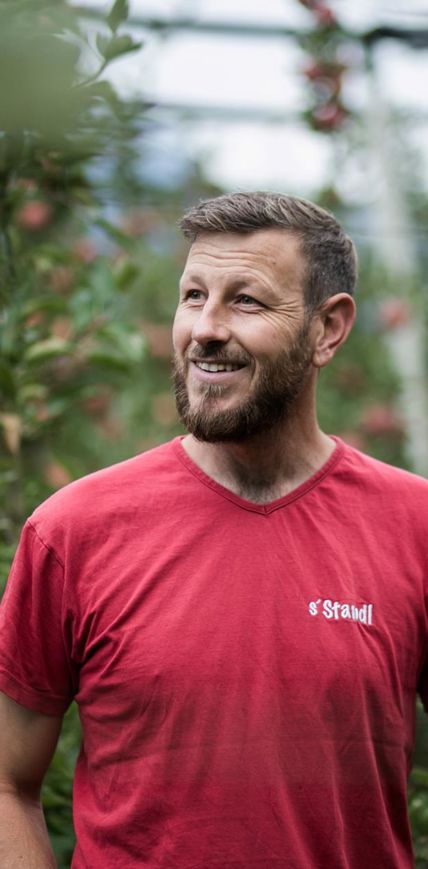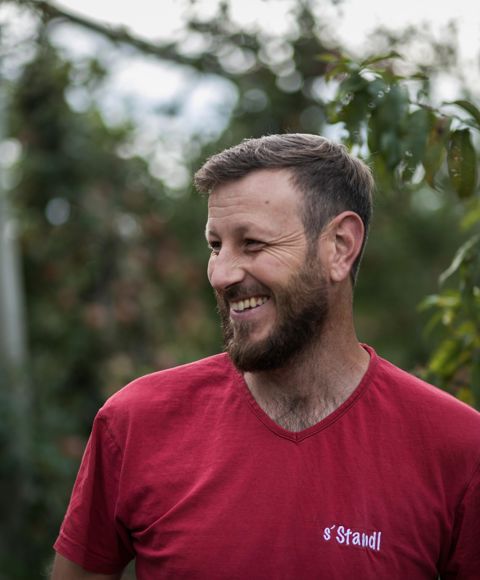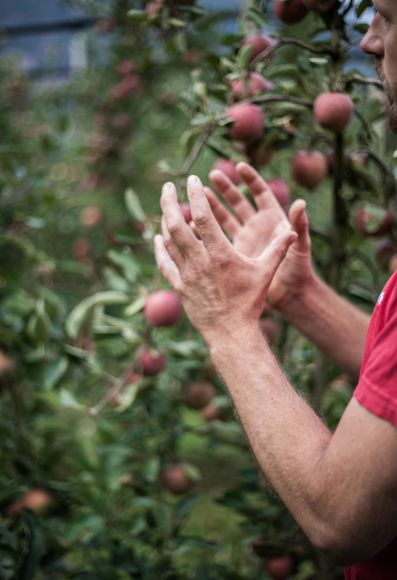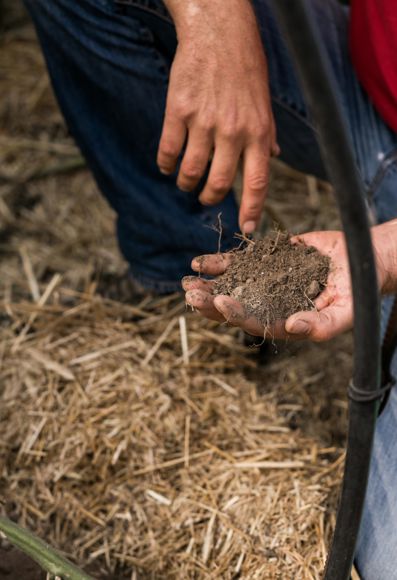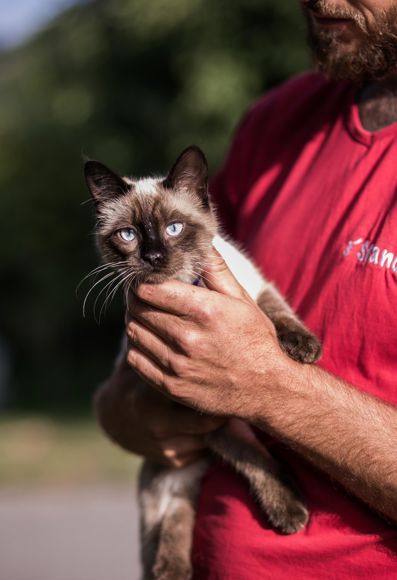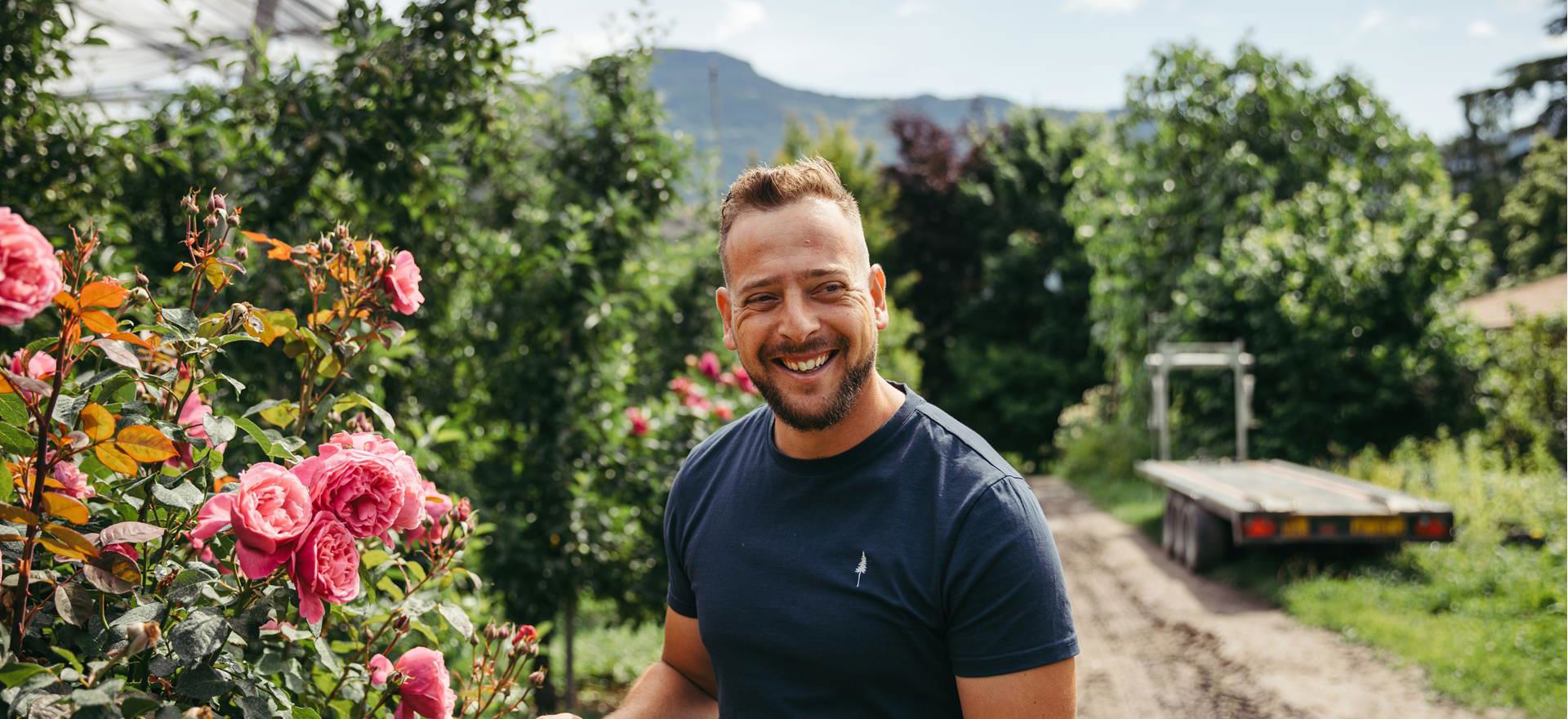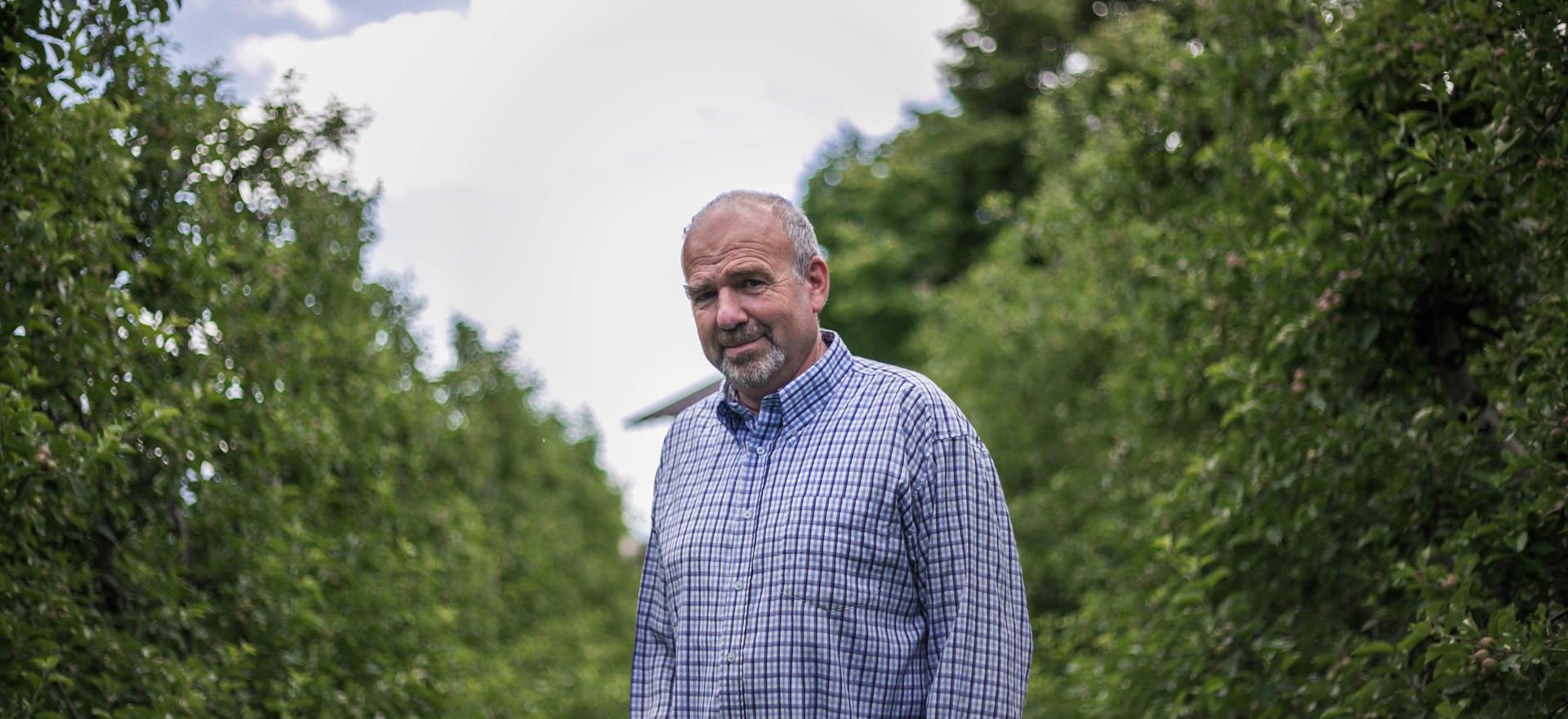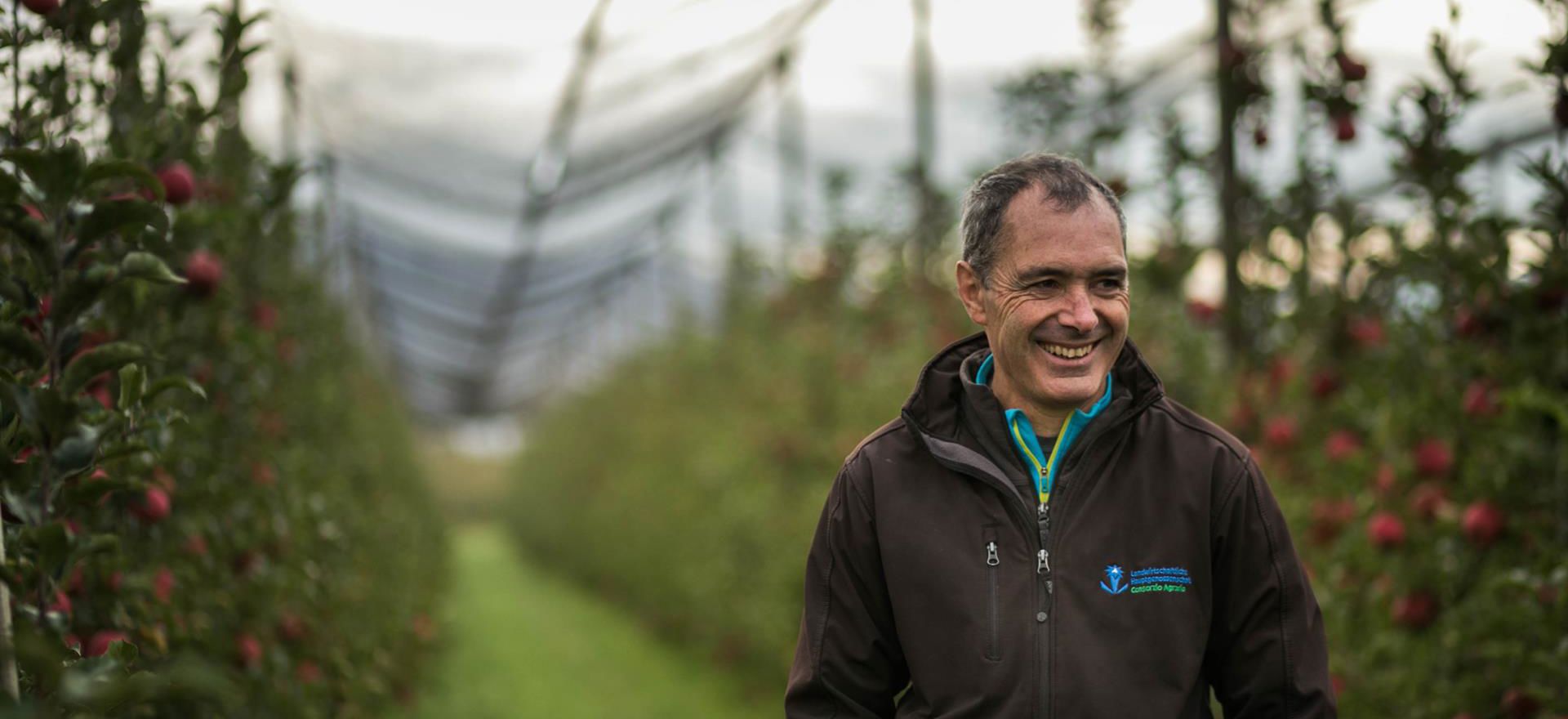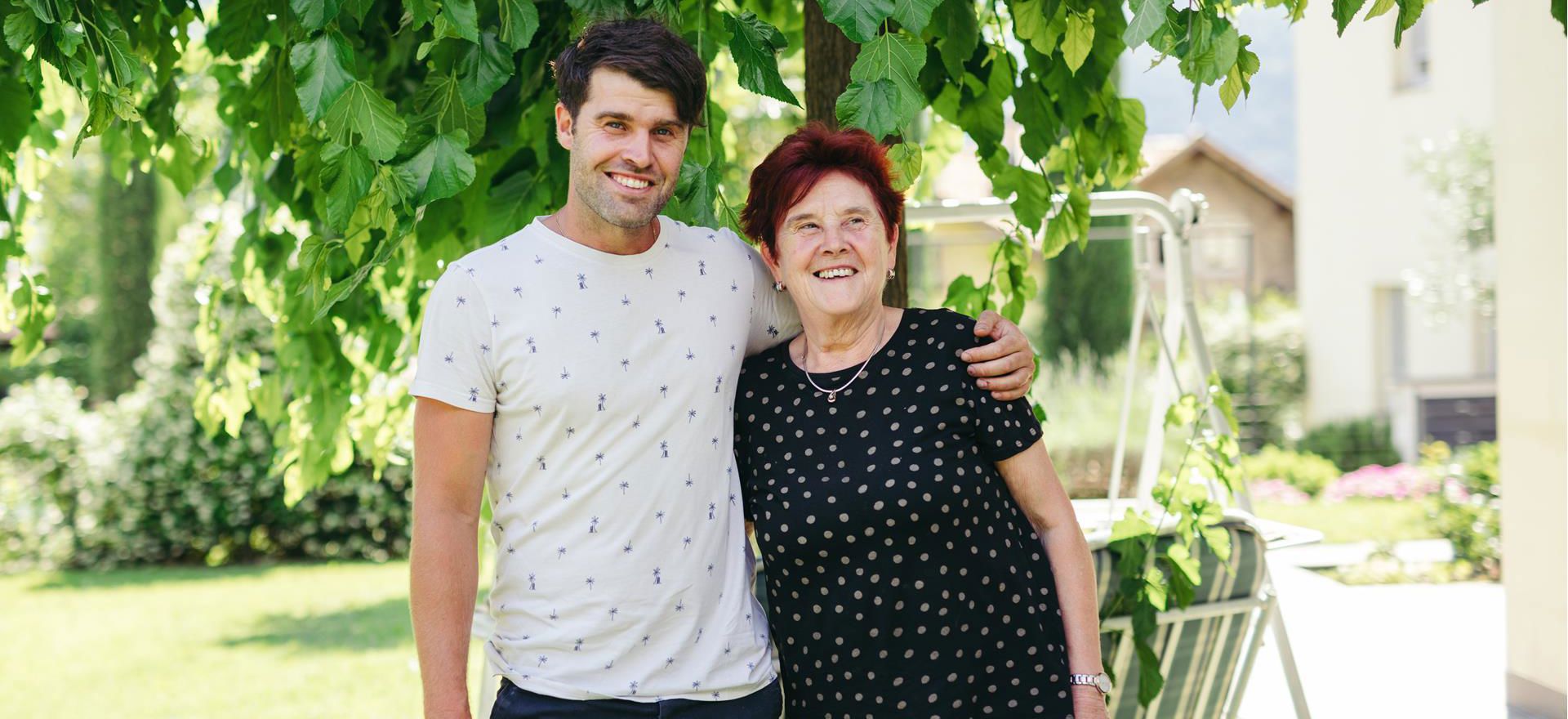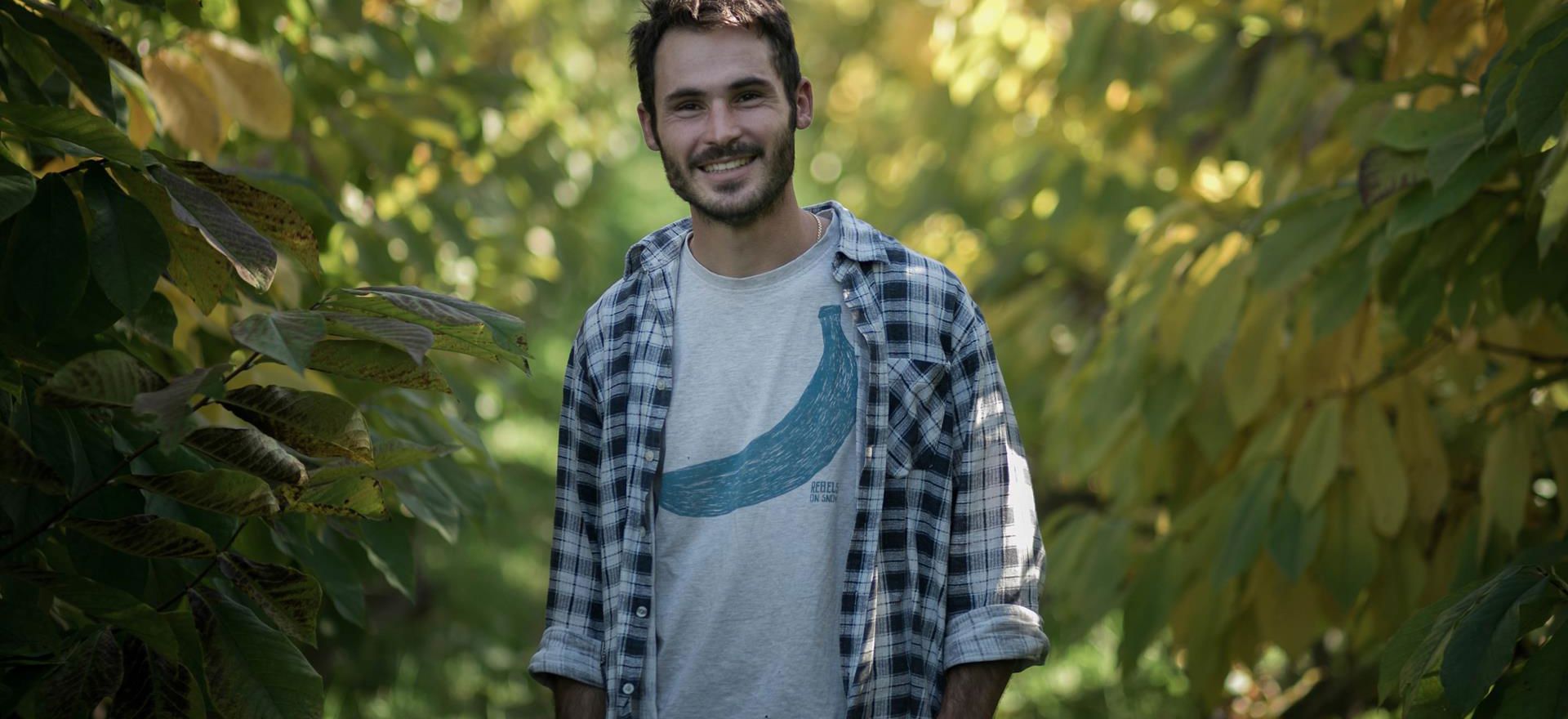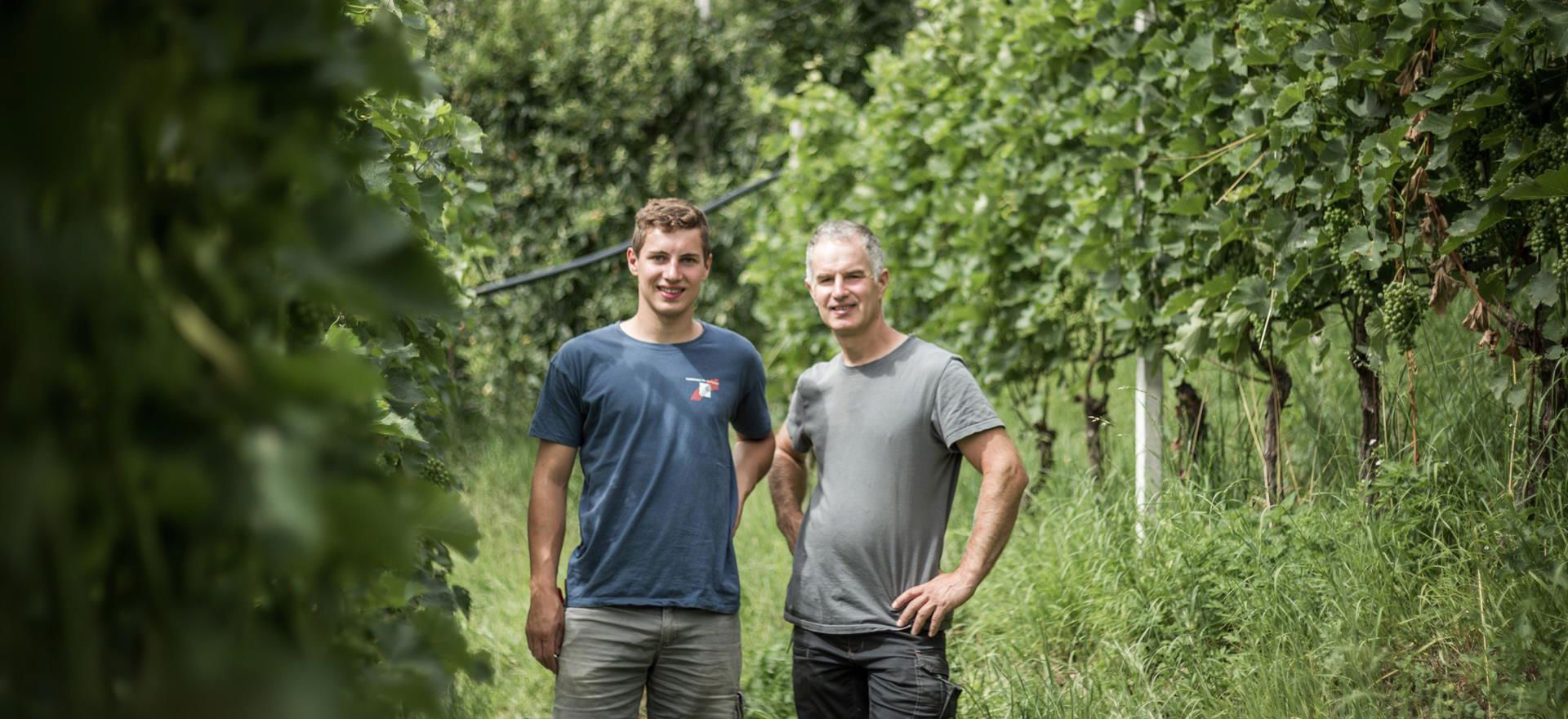Franz is an organic child.
His father Josef was a pioneer of organic farming and helped to establish the first organic associations and organic cooperatives in South Tyrol. Franz always liked being outdoors and was enthusiastic about farming. He trained to take over the farm at Laimburg and worked the family farm, Larchhof. With his father, he tended the organic apple meadows and vineyards in Terlan
In addition, there was a farm on the mountain plateau in Mölten, where his father kept animals. The "Mair Larchs", as they are called in the village, still use the manure in agriculture today, thus closing the cycle. As a forward thinker, it was out of the question for Josef to chain the animals, and so even then it was normal for them to be free-range; something that’s seen as progressive today.
In addition, there was a farm on the mountain plateau in Mölten, where his father kept animals. The "Mair Larchs", as they are called in the village, still use the manure in agriculture today, thus closing the cycle. As a forward thinker, it was out of the question for Josef to chain the animals, and so even then it was normal for them to be free-range; something that’s seen as progressive today.


